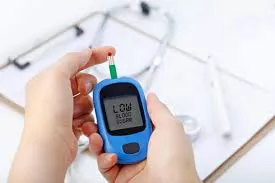Hypoglycemia is a medical condition characterized by abnormally low blood sugar levels, which can have significant implications for overall health and well being. In this article, we will explore the various aspects of hypoglycemia.
Normal Blood Glucose Levels
Normal blood glucose levels in adults typically range between 70 to 100 milligrams per deciliter (mg/dL) when fasting. These levels may vary slightly depending on individual factors such as age, health status, and time since the last meal. Maintaining blood glucose within this range is crucial for providing energy to the body’s cells and organs.
The threshold at which blood glucose levels are considered hypoglycemic is typically below 70 mg/dL. However, it’s important to note that symptoms of hypoglycemia can vary depending on individual tolerance levels, and some individuals may experience symptoms at slightly higher glucose levels.
Symptoms of Hypoglycemia
Common symptoms of hypoglycemia include:
- Shakiness
- Sweating
- Confusion
- Dizziness
- Hunger
- Rapid heartbeat
These symptoms may vary in severity and can have a significant impact on daily activities and overall quality of life.
Causes of Hypoglycemia
Hypoglycemia can be caused by a variety of factors, including:
- Excessive insulin
- Certain medications, such as insulin and sulfonylureas
- Alcohol consumption, especially on an empty stomach
- Medical conditions like diabetes, liver disease, and adrenal insufficiency
Understanding the underlying cause of hypoglycemia is essential for effective management and treatment.
Risk Factors
Certain factors may predispose individuals to hypoglycemia, including:
- Diabetes, especially type 1
- Certain medications, such as insulin and sulfonylureas
- Alcohol abuse
- Certain medical conditions, including liver disease and adrenal insufficiency
Awareness of these risk factors can help individuals and healthcare providers identify those who may be at increased risk of hypoglycemia.
Treatment and Management
Treatment strategies for hypoglycemia may include:
- Consuming fast-acting carbohydrates, such as glucose tablets or juice, to raise blood sugar levels quickly
- Adjusting medications, such as insulin or oral hypoglycemic agents, under the guidance of a healthcare provider
- Making dietary changes to stabilize blood glucose levels
- Engaging in regular physical activity to improve insulin sensitivity and blood sugar control
Prevention
Preventing hypoglycemic episodes involves:
- Regular monitoring of blood glucose levels, particularly for individuals at risk
- Consuming balanced meals and snacks to maintain stable blood sugar levels throughout the day
- Avoiding excessive alcohol consumption, especially on an empty stomach
- Adhering to medication regimens as prescribed by a healthcare provider
Conclusion
Hypoglycemia is a medical condition characterized by abnormally low blood sugar levels, which can have significant implications for overall health and well being. By understanding the symptoms, causes, risk factors, diagnosis, treatment, prevention, and when to seek medical help, individuals can effectively manage hypoglycemia and improve their quality of life. Working closely with healthcare providers and adopting healthy lifestyle habits are essential steps in managing this condition effectively.
Related topics:
If You Have Type 1 Diabetes, What Should Do Now?
What Can I Eat Immediately To Lower My Blood Sugar?
What Should You Eat Immediately If Your Blood Sugar Is High?

























